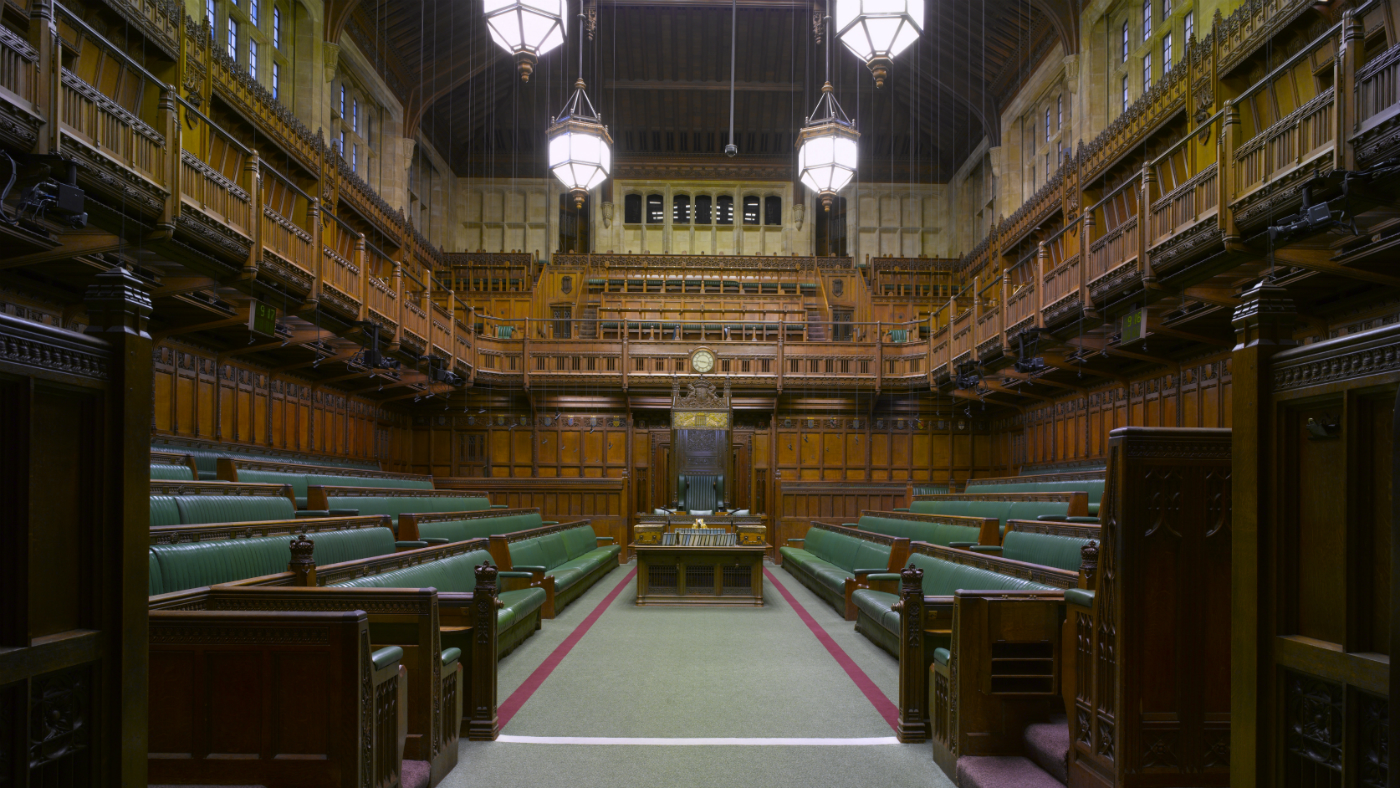What happens if Parliament shuts for five months?
Chief medical officer and Commons speaker consider suspension over coronavirus

A free daily email with the biggest news stories of the day – and the best features from TheWeek.com
You are now subscribed
Your newsletter sign-up was successful
The government may suspend Parliament in an effort to prevent the spread of coronavirus, according to reports.
“Downing Street has confirmed that Boris Johnson is in talks with the parliamentary authorities about a possible shutdown if the outbreak continues to get worse,” says Sky News.
The broadcaster says that England’s chief medical officer, Professor Chris Whitty, also briefed Commons Speaker Sir Lindsay Hoyle on Monday about the risks of the virus spreading in Westminster.
The Week
Escape your echo chamber. Get the facts behind the news, plus analysis from multiple perspectives.

Sign up for The Week's Free Newsletters
From our morning news briefing to a weekly Good News Newsletter, get the best of The Week delivered directly to your inbox.
From our morning news briefing to a weekly Good News Newsletter, get the best of The Week delivered directly to your inbox.
The discussions come after 36 new UK cases of the virus, which causes Covid-19 disease, were confirmed on Wednesday. This brought the total to 87 and fuelled fears that community transmission may now be taking place.
What might happen to Parliament?
Hoyle is “said to be concerned about the spread of coronavirus not only for the staff working in Parliament, but also because the Palace of Westminster is a major tourist attraction”, reports Sky.
A suspension of Parliament would be the first of its type since the Blitz during the Second World War, says Metro.
A free daily email with the biggest news stories of the day – and the best features from TheWeek.com
One senior parliamentary source told The Times that MPs could potentially rise for the Easter recess on 31 March but not return until September, a break of five months.
A spokesperson for the Prime Minister said: “I’m sure Parliament will be led by the advice of the experts in terms of taking the steps it needs in order to protect the people who work there.
“Discussions are already taking place with parliamentary authorities and scientific and medical advisers,” The Guardian reports.
–––––––––––––––––––––––––––––––For a round-up of the most important stories from around the world - and a concise, refreshing and balanced take on the week’s news agenda - try The Week magazine. Start your trial subscription today –––––––––––––––––––––––––––––––
Why would Parliament need to be shut down?
During Prime Minister’s Questions on Wednesday, SNP MP Carol Monaghan said MPs have the potential to spread coronavirus around the country, stating in the Commons: “Every week 650 of us come here from every part of the UK, spend several days operating in close proximity and meeting people from all over the world, and we then return to our constituencies, potentially becoming the very vectors that we are trying to shut down,” reports the Daily Mail.
The Independent says that owing to the large number of elderly peers in the House of Lords, Westminster “could be expected to be more vulnerable than the average workplace to coronavirus”, which “appears to be particularly dangerous to older and frailer patients”.
The leader of the Liberal Democrats in the Lords, Dick Newby, told the Guardian there were older peers with health issues who were considering not coming into the chamber.
“At this moment I don’t think they are running to the hills but if there are more cases in London and they rose significantly then perhaps this could happen but I’m not aware of anybody taking that step yet,” he said, adding that he could not envisage a scenario in which the Lords was shut down but the Commons remained open.
“We’re not all geriatric and it will take a lot to persuade me not to come in myself,” he said.
What has the reaction been?
Johnson is looking into “possible alternatives to MPs gathering at Westminster, such as electronic voting and debates by conference call”, claims the Daily Mail.
However, some MPs believe any talk of a parliamentary shutdown is “premature and would be very difficult to implement”, the Guardian says.
Labour MP Chris Bryant, a former deputy leader of the Commons, said Parliament should not jump to such extremes so early on.
“There are early-days measures they could do tomorrow like toilets with hot water, and it isn’t there. They should be thinking about it. There could be more hand sanitiser,” he said.
Furthermore, he added that emergency powers would also need to be voted on every 28 days and that would require MPs to come back to Parliament.